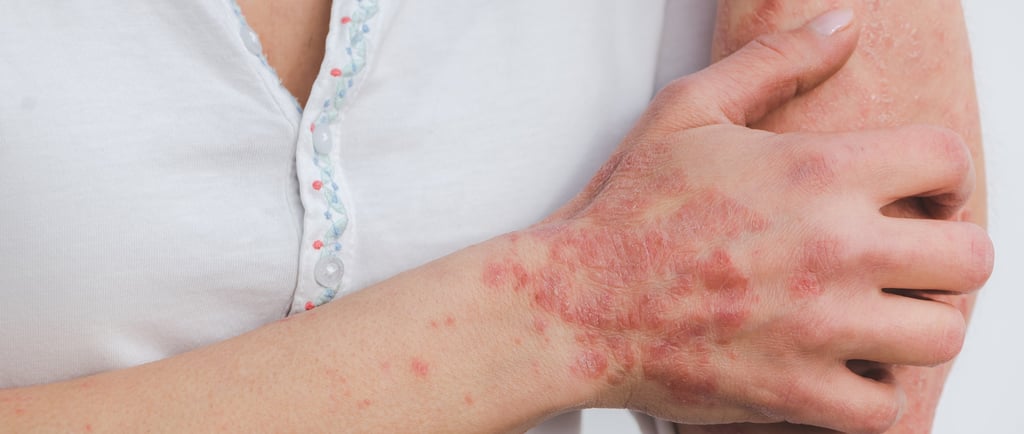psoriasis
causes of psoriasis
SKIN PROBLEMS PSORIASIS


Understanding Psoriasis:
Psoriasis is a chronic autoimmune condition that affects millions of people worldwide. Despite its prevalence, there are still many misconceptions and questions surrounding this skin condition. In this blog, we’ll explore some of the most frequently asked questions about psoriasis to help increase understanding and awareness.
What is Psoriasis?
Psoriasis is a chronic skin condition that speeds up the life cycle of skin cells, causing them to build up rapidly on the surface of the skin. This results in red patches covered with thick, silvery scales. Psoriasis can appear anywhere on the body, but it’s most commonly found on the elbows, knees, scalp, and lower back.
What Causes Psoriasis?
The exact cause of psoriasis is not fully understood, but it is believed to involve a combination of genetic, immune, and environmental factors. The immune system mistakenly attacks healthy skin cells, leading to the rapid turnover of skin cells. Triggers can include stress, infections, skin injuries, certain medications, and environmental factors.
Is Psoriasis Contagious?
No, psoriasis is not contagious. You cannot catch it from someone who has the condition. It is an autoimmune disorder, meaning it results from an overactive immune response rather than an infectious agent.
What are the Different Types of Psoriasis?
There are several types of psoriasis, including:
Plaque Psoriasis: The most common form, characterized by dry, raised, red skin lesions (plaques) covered with silvery scales.
Guttate Psoriasis: Often starts in childhood or young adulthood, presenting as small, drop-shaped lesions.
Inverse Psoriasis: Appears as bright red, shiny lesions in skin folds, such as under the breasts or in the groin area.
Pustular Psoriasis: Characterized by white pustules (blisters of non-infectious pus) surrounded by red skin.
Erythrodermic Psoriasis: A severe form that can cover the entire body with a red, peeling rash.
How is Psoriasis Diagnosed?
Diagnosis typically involves a physical examination of the skin, scalp, and nails. In some cases, a dermatologist may take a skin biopsy to rule out other skin conditions.
What Treatments are Available for Psoriasis?
Treatment options vary depending on the severity of the condition and may include:
Topical Treatments: Creams and ointments applied directly to the skin to reduce inflammation and slow skin cell turnover.
Phototherapy: Controlled exposure to ultraviolet light to help reduce symptoms.
Systemic Medications: Prescription medications taken orally or by injection that affect the entire body and are usually reserved for moderate to severe cases.
Biologics: Advanced medications that target specific parts of the immune system, often used for more severe psoriasis.
Can Diet and Lifestyle Changes Help?
While there’s no specific diet for psoriasis, some people find that certain dietary changes can help manage their symptoms. A balanced diet rich in anti-inflammatory foods—like fruits, vegetables, whole grains, and omega-3 fatty acids—may be beneficial. Additionally, maintaining a healthy weight, managing stress, and avoiding known triggers can also help.
Is Psoriasis Linked to Other Health Conditions?
Yes, psoriasis is associated with several comorbidities, including psoriatic arthritis, cardiovascular disease, obesity, diabetes, and depression. It’s important for individuals with psoriasis to be aware of these risks and to discuss them with their healthcare provider.
How Can I Support Someone with Psoriasis?
Support can make a significant difference for someone living with psoriasis. Be understanding and listen without judgment. Educate yourself about the condition, offer help when needed, and encourage open conversations about their feelings and experiences.
Conclusion
Psoriasis is a complex condition that affects many aspects of life. By understanding the frequently asked questions about psoriasis, we can foster a more informed and compassionate approach to those affected by it. If you or someone you know is struggling with psoriasis, consulting with a healthcare professional can provide guidance tailored to individual needs. Remember, while psoriasis may be chronic, it can be managed with the right treatment and support.
